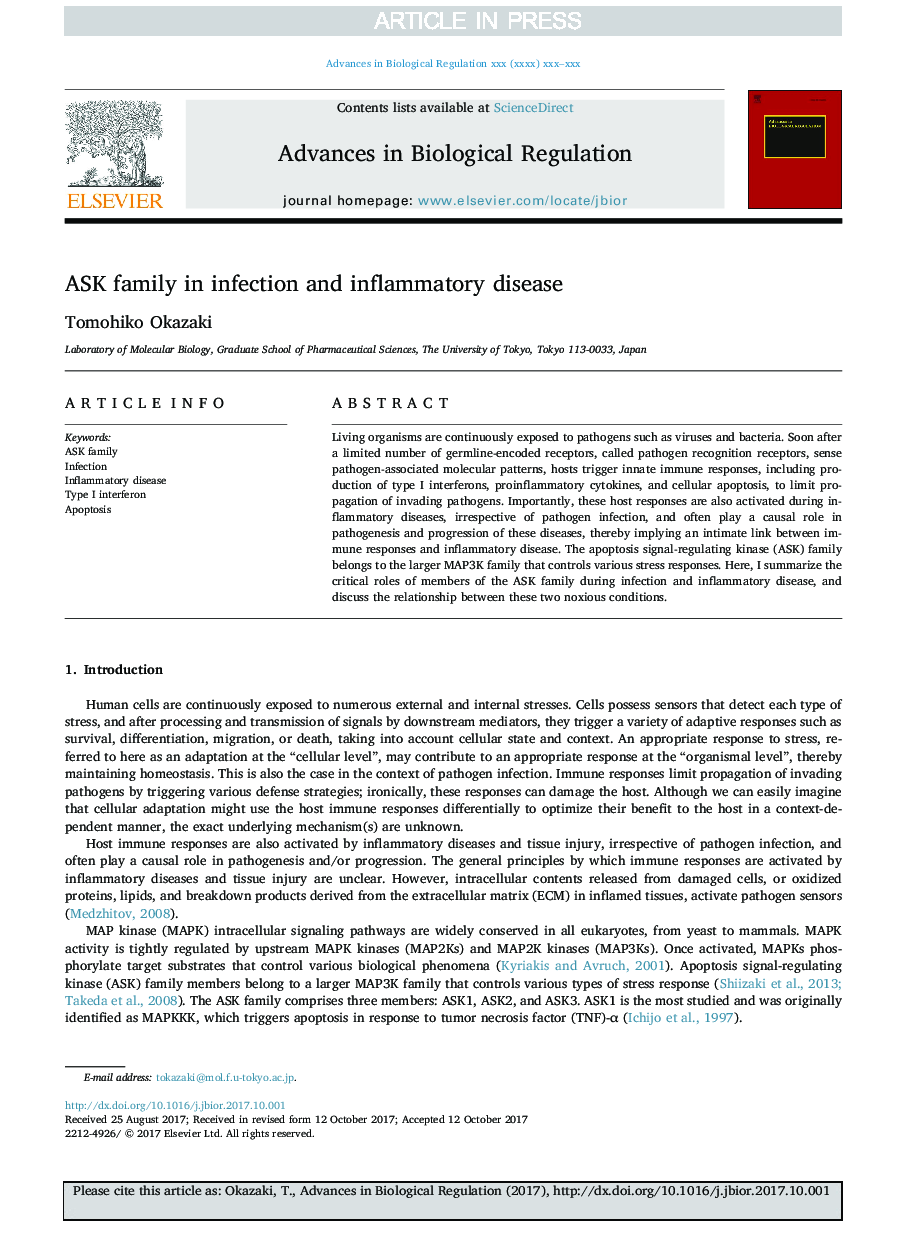| Article ID | Journal | Published Year | Pages | File Type |
|---|---|---|---|---|
| 8287776 | Advances in Biological Regulation | 2017 | 9 Pages |
Abstract
Living organisms are continuously exposed to pathogens such as viruses and bacteria. Soon after a limited number of germline-encoded receptors, called pathogen recognition receptors, sense pathogen-associated molecular patterns, hosts trigger innate immune responses, including production of type â
interferons, proinflammatory cytokines, and cellular apoptosis, to limit propagation of invading pathogens. Importantly, these host responses are also activated during inflammatory diseases, irrespective of pathogen infection, and often play a causal role in pathogenesis and progression of these diseases, thereby implying an intimate link between immune responses and inflammatory disease. The apoptosis signal-regulating kinase (ASK) family belongs to the larger MAP3K family that controls various stress responses. Here, I summarize the critical roles of members of the ASK family during infection and inflammatory disease, and discuss the relationship between these two noxious conditions.
Related Topics
Life Sciences
Biochemistry, Genetics and Molecular Biology
Biochemistry
Authors
Tomohiko Okazaki,
